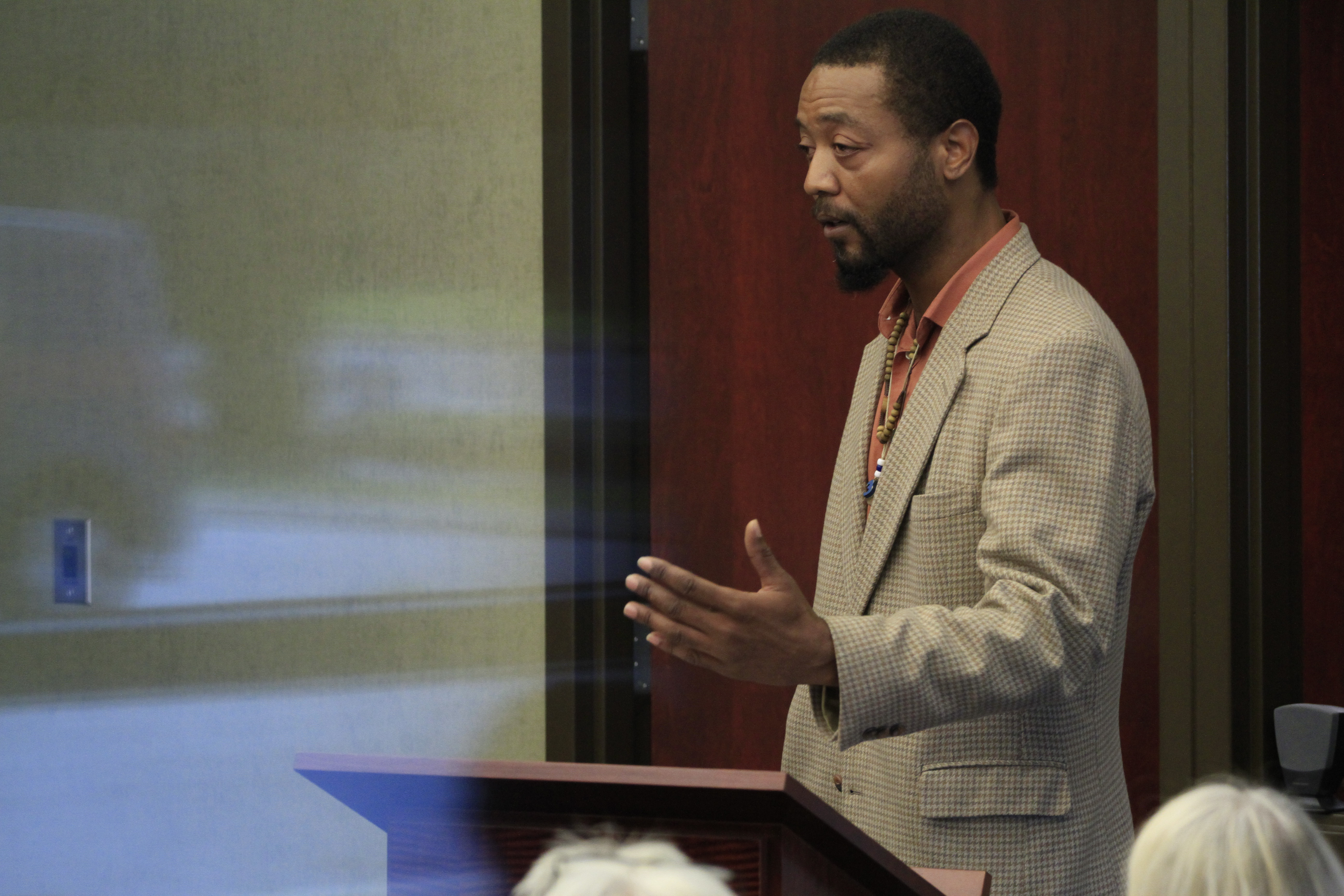A community activist and former Erlanger employee called on Hamilton County commissioners to work against what he called "a catastrophe in the making," referencing recent actions by the hospital's board and proposed legislation to reform it.
Patrick Kellogg, who Erlanger said left the hospital in March 2011, claims hospital trustees violated the state's open meetings law on four occasions before appointing Kevin Spiegel as CEO on Monday.
He said Wednesday he plans to file injunction paperwork against the board in Chancery Court by Friday.
Kellogg said he left the hospital to become a community activist working with emerging gang problems.
State law passed in 2011 allows hospitals bound by open meetings laws, like Erlanger, to hold closed meetings to discuss strategic business planning to protect the hospital's ability to compete with the private sector. But any action resulting from those meetings is subject to open meetings laws.
The board, Kellogg claims, abused the exemption at four different meetings in December, January and this month. Citing state law, Kellogg told Hamilton County commissioners that Erlanger trustees have used the planning exemption as a blanket, and any actions taken at those closed meetings should be void.
Kellogg said Wednesday he "didn't have a dog in the fight" as to who becomes the hospital's CEO; he is simply concerned about the lack of transparency in the board's search process.
Several board members said Wednesday they did not violate any open meetings laws.
"I in no way believe we violated the laws that allow us to have those meetings," said Erlanger board Chairman Ron Loving. "I don't think we had any improper use of those statutes."
Trustee Dr. Phyllis Miller, who led the CEO search committee, said candidates may have been discussed during several of the closed meetings, but those discussions were not deliberative.
"I'm trying to remember -- I believe we talked about candidates, but just sharing information. We rely on our legal counsel, and try to stick very strictly with the parameters of the law," she said.
Erlanger issued a statement, saying "closed sessions are held to discuss marketing and strategy, when receiving legal guidance, discussing peer review and quality matters and receiving information on other topics. The board neither deliberates nor votes in closed session on issues that must be decided in a public meeting."
Kellogg also said that creating a self-perpetuating board, as state lawmakers have proposed, would make the hospital's leadership "void of diversity, subject to group-think, insular and isolated from issues on the ground."
County Mayor Jim Coppinger said the legislation, which will overhaul Erlanger's board, is expected to reach the Senate floor Monday.
Commissioner Tim Boyd, who has questioned the proposed legislation, said after the commission meeting that he agrees with some of what Kellogg said.
"The problem I have is with the process. I want more transparency, more sitting down with the community. ... We've been totally left out of this whole process," Boyd said.
Noting that only a judge can place an injunction on the Erlanger board, Coppinger said after the meeting that county government has little authority over the hospital board.
"I'm not really aware of what those meetings were about," Coppinger said.
He also said there was little he or the commission can do with the proposed legislation until it makes its way though the Legislature.
Meanwhile, Spiegel has spent the last two days in Chattanooga, negotiating the details of his contract and meeting with physicians.
Loving said trustees will likely vote on Spiegel's contract at the board's Feb. 28 meeting.


